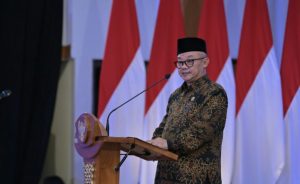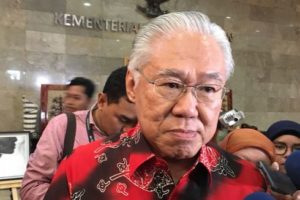
Indonesian tax amnesty program records big success.
Jakarta, 10 Rajab 1438/07 April 2017 (MINA) – Indonesia’s tax amnesty has raked in billions of dollars for the government, and all eyes are now on reform that is being planned to improve tax collection in ASEAN’s biggest economy.
Also Read: Saudi Arabia Wins Bid to Host World Expo 2030
The government is expected to review policies and cut red tape as it moves to overhaul the tax collection system, billed by the public as one of the most corrupt sytems in the country, analysts and officials told The Straits Times.
“It will be a comprehensive tax reform, now that we have information on the wealth of Indonesians,” said lawmaker Andreas Eddy Susetyo, who is a member of the parliamentary commission overseeing finance.
Finance Minister Sri Mulyani Indrawati had started the ball rolling even before the amnesty programme ended last Friday, nine months after it was kicked off with much hype last July.
Last December, the former World Bank managing director set up a special tax reform team to transform state agencies handling excise and Customs matters.
Also Read: 148 Products from Indonesia Promoted at Sarawat Superstore Jeddah
She also told the team to use amnesty data to explore new revenue potential. “Say a person has declared that he owns two houses. Now the government can ask him if he is renting them out. If he says ‘yes’, he can be taxed. That’s new income,” Standard Chartered Indonesia senior economist Aldian Taloputra explained.
The tax amnesty, aimed at luring wealthy Indonesians to come clean with the taxman on their assets at home and abroad, offers generous tax rates as low as 2 per cent.
Many parts of the economy still untaxed
Also Read: Packaging Industry Supports Halal Ecosystem
Repatriated funds of 147 trillion rupiah (S$15.5 billion) had poured into the state’s coffers, with more than half coming from Singapore.
Newly declared assets amounted to almost 5,000 trillion rupiah – or nearly 40 per cent of the country’s gross domestic product (GDP).
This will now be the new tax base, generating an additional income of 220 trillion to 230 trillion rupiah, Coordinating Maritime Affairs Minister Luhut Pandjaitan told The Straits Times in Jakarta.
Indonesia has one of the lowest tax ratios in South-east Asia, which at the current 11.5 per cent of the GDP indicates that many parts of the economy are still untaxed.
Also Read: Indonesia-Japan Agree on Energy Transition Cooperation
Mr Luhut, who had helped to draft the tax amnesty programme when he was presidential chief of staff in 2015, said: “Our tax ratio is forecast to be at 11.7 per cent next year, and that would be a record high.”
Analysts say the government must improve its internal infrastructure, such as increasing manpower in the tax sector, raising the competence of staff and giving tax collectors wider access to bank data.
Fiduciary and corporate services expert Alain Esseiva, chief executive of Alpadis Group Singapore, said: “Indonesia needs to address underlying structural problems so its investors will invest locally instead of heading elsewhere like Singapore. So it will need to look at how it can improve ease of doing business and transparency.”
For now, the first axe is likely to fall on tax evaders who had refused to join the scheme.
Also Read: Dubai Expo 2020 Holds Special Event for Palestine
Indonesia’s tax authorities had earlier warned that they would be slapped with heavier penalties, as much as 200 per cent. Mr Andreas said: “Yes, we are serious in going after them and will take legal action.”
But for tax reforms to succeed, there must be political will, Center for Indonesia Taxation Analysis executive director Yustinus Prastowo said.
Mr Yustinus added: “There needs to be greater integration and coordination among government institutions and better administration. More importantly, we need to lower the level of corruption.” (T/RS5/RS1)
Mi’raj Islamic News Agency (MINA)
Also Read: Indonesia Increases Excise on Tobacco Products by 2022



































 Mina Indonesia
Mina Indonesia Mina Arabic
Mina Arabic